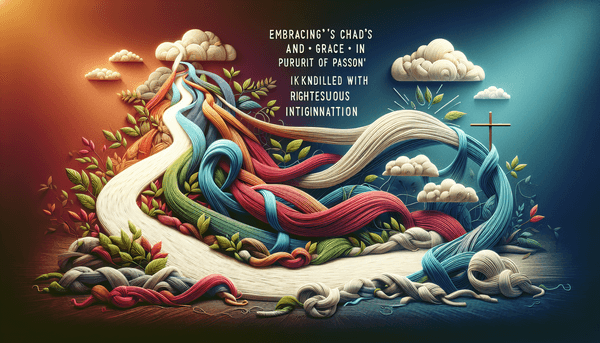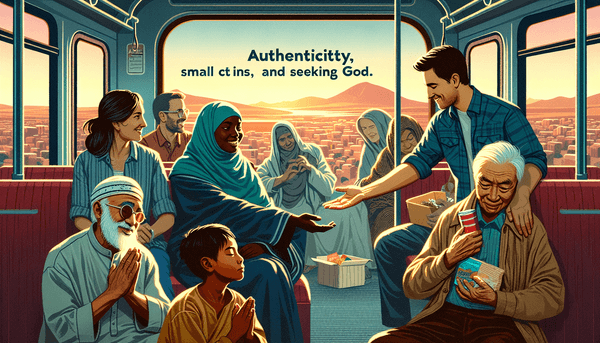The Value of Companionship and Support
'Two are better than one, because they have a good return for their labor: If either of them falls down, one can help the other up.' These words from Ecclesiastes 4:9-12 encapsulate the essence of companionship. The Bible emphasizes the rewards of mutual support and the comfort found when two people unite in purpose and spirit. The warmth of companionship is not merely physical, but deeply emotional and spiritual, offering solace and strength that goes beyond the material. When one is overpowered or faces adversity, a companion provides resilience that is not easily shaken—a bond exemplified by the 'cord of three strands' that is not quickly broken. Yet, for those who fall with no one to lift them, the scripture expresses a poignant pity, reminding us of the importance of building and maintaining connections with others. Strengthened by verses like Proverbs 17:17 and Galatians 6:2, we are encouraged to bear each other's burdens and to be a friend who loves at all times.
The Enduring Nature of Love
Love's resilience is a cornerstone of Christian faith, poignantly described in 1 Corinthians 13:7: 'Love never gives up, never loses faith, is always hopeful, and endures through every circumstance.' This chapter, often referred to as the 'Love Chapter,' outlines the characteristics of true love that perseveres despite life's trials. It is this love that sustains and uplifts, that maintains faith and hope when the path grows dim. The Bible teaches us that love is the greatest of all virtues, and its impact on our relationships is immeasurable. In the daily expression of love, we find patience, kindness, and forgiveness, as urged by Colossians 3:14. The commitment to love as described in Romans 12:9-10 and the call to 'love deeply, because love covers over a multitude of sins' from 1 Peter 4:8, guide us in nurturing enduring bonds with those around us.
The Commandment to Love One Another
Jesus' commandment in John 13:34-35, 'Love one another. As I have loved you, so you must love one another,' sets a profound standard for how we should treat each other. This love not only reflects the love God has for us but also serves as the mark by which Jesus' disciples are recognized. It fulfills the greatest commandments, as stated in Matthew 22:37-39: to love God with all our being and to love our neighbor as ourselves. This call to love is not a passive feeling but an active force that has the power to transform our personal interactions and the society at large. By adhering to 1 John 4:11-12 and loving one another, God's love is made complete in us, creating a ripple effect of kindness and understanding that transcends individual relationships. To further explore how such love interplays with our spiritual journey, including the pursuit of God's purpose for our lives, visit our deeper exploration on dreams, divine purpose, and spiritual growth.
Conclusion
Through the exploration of Biblical teachings, we find that love and support are not mere suggestions but foundational elements of a faith-driven life. Companionship offers a return on investment that is more than material, while the enduring nature of love empowers us to face life's adversities with hope. The commandment to love one another is an invitation to embody the principles of Christianity, to reflect God's love, and to make a positive impact on the world. As we conclude, let us carry these teachings forward, allowing them to shape our relationships and actions, and inviting others to experience the warmth and strength of a life lived in love.






